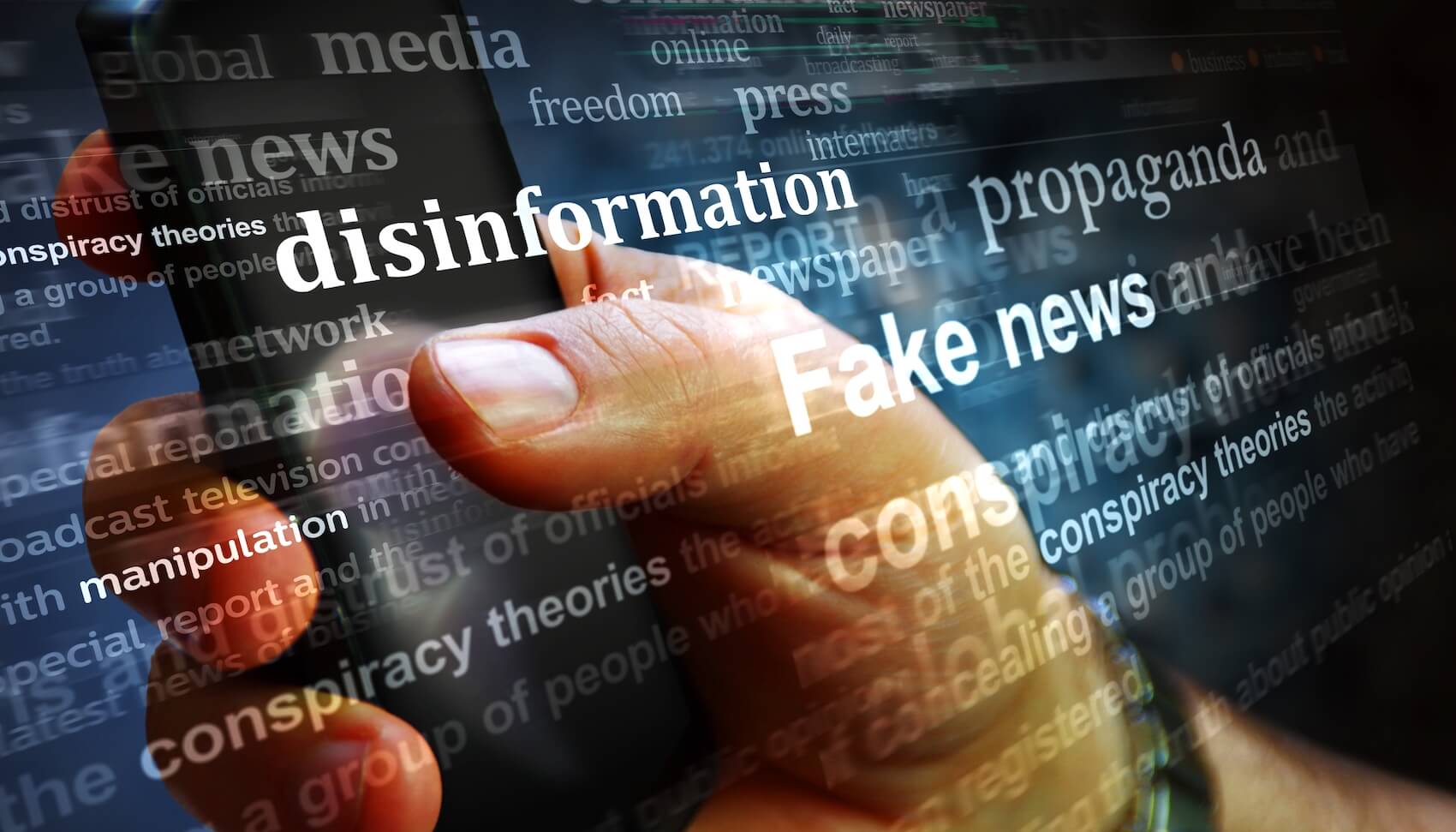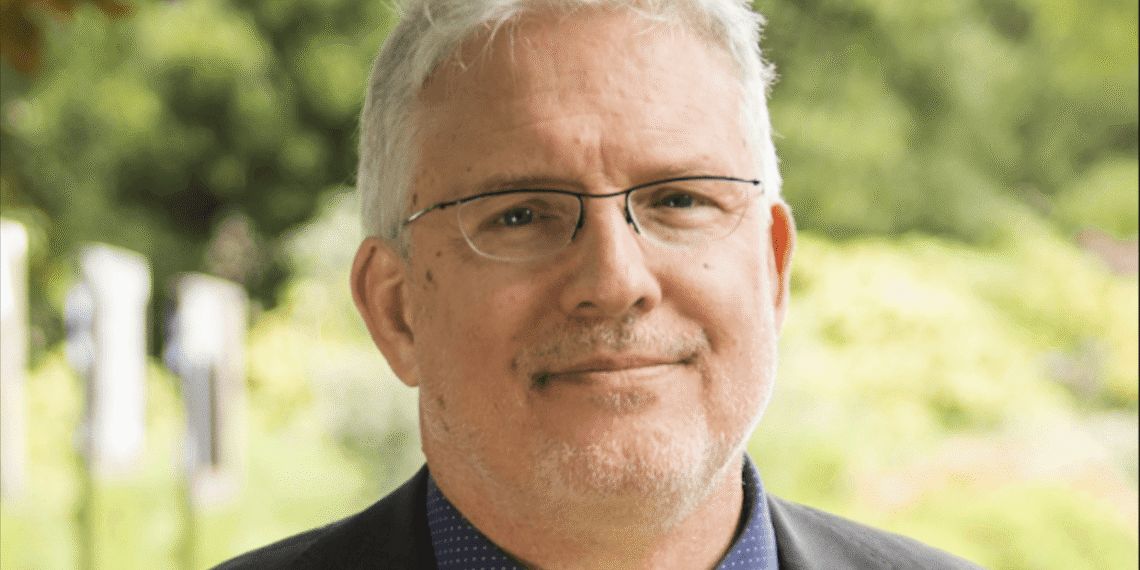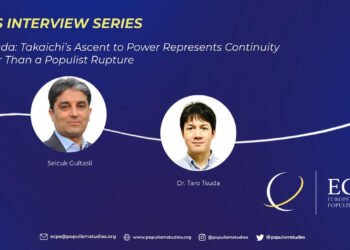The eighth lecture of the ECPS Academy Summer School 2025 was delivered online by Professor Stephan Lewandowsky, a globally recognized expert on misinformation and political psychology. His presentation offered a penetrating analysis of how climate disinformation is fueled by an organized infrastructure of vested interests and amplified by populist politics, which undermine trust in science. Professor Lewandowsky highlighted that ideological commitments—particularly free-market conservatism—strongly shape public acceptance of climate science. He emphasized that communicating the overwhelming scientific consensus on climate change can be a powerful corrective but cautioned that disinformation thrives in an environment where politics and identity outweigh facts. His lecture underscored the urgent need to confront these structural and ideological barriers to effective climate action.
Reported by ECPS Staff
The eighth lecture of the ECPS Academy Summer School 2025, titled “Climate Change, Populism, and Disinformation,” took place online on July 11, 2025, as part of a week-long program dedicated to exploring the intersection of populism and climate change under the theme “Populism and Climate Change: Understanding What Is at Stake and Crafting Policy Suggestions for Stakeholders.”The lecture was delivered by Professor Stephan Lewandowsky, a globally renowned cognitive scientist and Professor of Psychology at the University of Bristol.
Professor Lewandowsky’s research spans political psychology, misinformation, and the relationship between human cognition and digital media, focusing particularly on how misinformation about critical issues—such as climate change—takes hold and persists. His expertise has earned him numerous accolades, including fellowships from the Royal Society and the Academy of Social Science, a Humboldt Research Award, and election to the prestigious German National Academy of Sciences (Leopoldina). He has authored hundreds of scholarly publications, many of which appear in leading journals, and is a frequent contributor to policy discussions and media commentary on the challenges posed by misinformation to democracy and public understanding.
Moderating the session was Neo Sithole, a Research Fellow at ECPS, whose work focuses on the relationship between populist politics and global governance.
Professor Lewandowsky’s lecture addressed one of the most urgent and challenging phenomena of our time: the proliferation of disinformation in the climate domain and its entanglement with populist politics. The lecture provided participants with a comprehensive framework structured around four key themes: (1) contextualizing today’s “post-truth” condition; (2) examining the supply side of climate disinformation, including the institutional and financial networks that propagate it; (3) analyzing the demand side—why certain segments of the public are receptive to misinformation; and (4) exploring potential strategies to counteract the spread and influence of climate-related falsehoods.
In doing so, Professor Lewandowsky offered a penetrating analysis of how populism not only fosters skepticism about climate change but also contributes to the erosion of the very idea of factual truth itself. His presentation challenged participants to think critically about the deeper cultural, political, and epistemological forces at play in shaping public attitudes toward climate change, making it an essential contribution to the Summer School’s interdisciplinary exploration of populism’s global impact.
Populism, Propaganda, and the Collapse of Truth

Professor Lewandowsky began by setting the scene with a trenchant analysis of today’s so-called “post-truth world.” He described this condition as exemplified by US President Donald Trump, who “during his first presidency made more than 30,000 false or misleading claims—about one an hour, 24/7 for four years.” Yet despite this unprecedented torrent of misinformation, Professor Lewandowsky noted a striking paradox: “About three-quarters of his voters considered him to be honest during that time, and that to me is a real conundrum.”
This conundrum, he argued, reveals that misinformation today is not simply about factual disputes but reflects a deeper collapse in the very notion of truth itself. He illustrated this through the infamous controversy surrounding Trump’s inauguration crowd size. Using photographs that plainly demonstrated that Obama’s inauguration had far higher attendance, Professor Lewandowsky posed the question: “The falsehood is so easily disproven that you wonder why anybody would even bother with this.” The answer, he suggested, lies in what has been termed “shock and chaos disinformation”—an intentional blizzard of lies whose purpose is not to persuade but to undermine the very idea of factual reality.
Indeed, a revealing study conducted immediately after Trump’s inauguration showed that “Trump voters, and in particular those who are highly educated, were more likely to pick the wrong picture.” This led Professor Lewandowsky to conclude that this behavior reflects “participatory propaganda,” where individuals knowingly repeat falsehoods to signal political allegiance rather than out of ignorance. “They knew there were fewer people attending Trump’s inauguration, but it didn’t matter, because they wanted to support him,” he explained.
Professor Lewandowsky then situated this phenomenon within a broader critique of populism. At its core, populism asserts an artificial and often arbitrary division between “the people” and “the elites,” a division which, he noted, “negates pluralism because any opposition to the people is by definition bad, so it is anti-democratic.” Crucially, he highlighted that populism undermines epistemic standards by elevating intuition and “common sense” above empirical evidence. Citing Trump’s baseless attribution of a plane crash to diversity hires in air traffic control, Professor Lewandowsky observed: “There’s no evidence for that—complete, utter nonsense—and when he was asked about it, he said, ‘Well, it’s common sense.’”
This epistemological posture, he argued, renders populism “by design incompatible and in constant conflict with science,” because it rejects the principle that “evidence matters to adjudicating the state of the world.” As a result, even in contexts where survey data show that a majority of Americans accept anthropogenic climate change, Professor Lewandowsky cautioned that “what this obscures is the amazing divergence… less than a quarter of Republicans think climate change is a big deal or should be taken seriously.” He concluded that the Republican Party had “mutated into this populist-slash-fascist organization that has little resemblance to the Republican Party that I’m used to when I was living in the United States.”
Through this analysis, Professor Lewandowsky made clear that contemporary climate denialism and disinformation cannot be understood apart from the populist assault on truth itself. His lecture highlighted how misinformation serves as a political identity marker, shielding adherents from empirical falsification and entrenching ideological divides.
The Supply Side: The Infrastructure of Climate Disinformation

In his incisive lecture, Professor Lewandowsky devoted significant attention to what he termed the “supply side” of climate disinformation—the institutional, financial, and rhetorical infrastructure fueling public misunderstanding about climate change. He began by posing critical questions: What forces drive disinformation? Who is shaping the narratives that mislead the public? Drawing on empirical research, he argued that climate disinformation is not random but anchored in a visible network of organizations operating predominantly in the United States and Europe. This infrastructure, while “in broad daylight,” often escapes the public’s attention.
At the core of this infrastructure is a striking financial commitment from vested interests, particularly fossil fuel industries and their affiliates. Professor Lewandowsky observed that these actors receive almost a billion dollars annually—a figure that, though not exclusively devoted to climate denial, reflects the depth of resources sustaining disinformation campaigns. In addition, lobbying efforts aimed at blocking climate policy in the US Congress account for approximately two billion dollars more, illustrating the immense scale and persistence of attempts to distort climate discourse.
Professor Lewandowsky highlighted a study by Justin Farrell that mapped relationships among organizations engaged in climate denial. This research demonstrated that institutions known to be funded by Exxon or the Koch Brothers tend to occupy central positions in these disinformation networks. This finding underscores how denial campaigns are not simply ideological but orchestrated, with financial and strategic backing from corporate interests.
He turned next to media dynamics that amplify this disinformation. Professor Lewandowsky critiqued the enduring journalistic tendency toward false balance: while balance is appropriate in political contexts, it becomes problematic when applied to science, where the balance should be “between evidence and not between opinions.” He illustrated how mainstream media for years gave equal time to climate scientists and fringe voices opposing the science, sometimes to absurd extremes—such as featuring an astrologist predicting cats’ personalities while dismissing climate change as a hoax.
Although this problematic media practice has improved marginally, Professor Lewandowsky argued that a disproportionate voice is still granted to contrarians. He pointed out that press releases from conservative think tanks attacking climate science continue to receive more media attention than university research highlighting the scientific consensus.
Having described this infrastructure of disinformation and amplification, Professor Lewandowsky turned to the disinformation content itself. He acknowledged that it is commonly assumed—sometimes too casually—that the claims spread by think tanks are inaccurate, but he insisted on demonstrating this rigorously. He introduced a taxonomy of science denial rhetoric, highlighting cherry picking as one of the most pervasive techniques.
To illustrate cherry picking, Professor Lewandowsky described a notorious example: a British opinion piece that cited a short-term drop in global temperature between two Januarys in 2007 as proof that climate science was wrong. This claim ignored long-term warming trends in favor of a trivial fluctuation—a classic instance of cherry picking. Professor Lewandowsky explained that natural variability, when isolated from broader trends, can be rhetorically exploited to mislead, despite the overwhelming evidence for global warming.
Recognizing that simply pointing out such fallacies often fails to persuade in a polarized environment, Professor Lewandowsky recounted a creative study he and colleagues designed to test denialist reasoning in an ideologically neutral way. They translated climate-denialist claims into an unrelated context—village population trends—and presented these translated claims, accompanied by corresponding graphs, to professional statisticians. The statisticians overwhelmingly found that the denialist interpretations were inaccurate and not suitable for informing policy, whereas the scientific consensus interpretations aligned with the data. This experiment compellingly demonstrated that denialist arguments fail not because of political contestation but because they are empirically incorrect.
Professor Lewandowsky concluded this portion of his lecture with a sobering observation: the public is being actively denied the right to accurate information about an existential risk. This is not simply a matter of competing narratives, he argued, but a profound ethical and political problem. The public is being misled through a coordinated and well-funded campaign, obstructing collective action on one of the most urgent challenges of our time.
Overall, Professor Lewandowsky’s analysis exposed a sophisticated, well-resourced, and tightly coordinated infrastructure of climate disinformation, showing that climate denial is not simply ignorance but an orchestrated political project closely tied to populist movements and vested interests. His lecture called on participants to recognize the structural forces behind disinformation and underscored the need for rigorous, empirically grounded responses that hold these forces accountable.
The Demand Side: Why People Believe Climate Misinformation

In this part of his lecture, Professor Lewandowsky explored the “demand side” of climate disinformation, focusing on the question of why significant segments of the public are receptive to misinformation about climate change. Rather than attributing this to simple ignorance or lack of information, Professor Lewandowsky argued that the primary driver is ideology: people’s deeply held worldviews and political identities shape how they interpret and accept information, including scientific evidence.
He began by underscoring a striking pattern from decades of research: attitudes toward climate change are strongly determined by an individual’s ideological orientation, particularly their endorsement of free-market principles. Whether measured as conservatism, libertarianism, or party affiliation, the relationship is consistent globally: individuals who favor small government and deregulated markets are much more likely to reject the scientific consensus on climate change. As Professor Lewandowsky summarized, this pattern is "pervasive," observed not only in the United States and other English-speaking countries but also in diverse contexts worldwide.
One particularly counterintuitive finding Professor Lewandowsky emphasized was that increased education does not necessarily reduce skepticism about climate change; instead, it amplifies existing ideological divides. In the United States, for example, more educated Democrats are more likely to accept climate science, while more educated Republicans become even more dismissive. This suggests that higher education may provide the cognitive tools for individuals to selectively reinforce beliefs aligned with their political identities—a phenomenon known as "motivated reasoning."
Professor Lewandowsky encouraged participants to think not only about political ideology but also about the relationship between science itself and certain ideological outlooks. He pointed out that science, over the centuries, has displaced humanity from its perceived centrality in the universe, challenging beliefs in human exceptionalism. For those who maintain strongly anthropocentric or hierarchical worldviews—a tendency more common among conservatives—this can be profoundly unsettling.
Moreover, Professor Lewandowsky highlighted how the core norms of science may conflict with conservative values. Drawing on classical sociological analysis, he explained that science rests on principles such as universalism, communal sharing of knowledge, and disinterestedness. He noted that even the language—terms like "communism" and "universalism"—can sound alien or even threatening to those who value national sovereignty, individualism, and hierarchy. This creates a deeper tension: resistance to climate science may not only reflect skepticism about a particular set of facts but discomfort with the very norms and practices of scientific inquiry.
To substantiate this, Professor Lewandowsky described empirical work examining correlations between individuals’ conservatism, their acceptance of scientific norms, and their attitudes toward climate change and vaccination. The results revealed that people who strongly endorsed conservative values were less likely to accept both climate science and vaccines and were also less likely to endorse the core norms of science itself. This association existed independently of exposure to specific scientific findings, suggesting that a general distrust of the scientific enterprise plays a significant role in shaping attitudes.
Professor Lewandowsky also noted that this distrust is exacerbated by the policy implications of climate science: addressing climate change requires government interventions in the market, such as carbon pricing or emissions regulations—policies fundamentally at odds with libertarian or free-market worldviews. Thus, opposition to climate science is often inseparable from opposition to perceived threats to economic freedom.
Communicating Consensus and Political Realism
In the final part of his lecture, Professor Lewandowsky addressed possible strategies for countering climate misinformation, with a focus on the communication of scientific consensus. He began by acknowledging a fundamental challenge: simply providing accurate information is often ineffective in today’s polarized environment. Ideological commitments, he noted, strongly shape whether people accept or reject scientific evidence, meaning that facts alone are unlikely to change minds.
Nevertheless, Professor Lewandowsky argued that one communicative strategy stands out as particularly promising—emphasizing the overwhelming consensus among climate scientists. To illustrate this point, he used an analogy: “Would you eat oysters if 97 out of 100 microbiologists told you they were contaminated and unsafe to eat? I wouldn’t touch these damn things,” he remarked, underscoring how consensus messaging taps into a basic human intuition about expert agreement.
Professor Lewandowsky stressed that the scientific consensus on climate change is similarly robust: over 97 percent of climate scientists agree that human activity is driving global warming, a level of agreement comparable to other widely accepted scientific facts. Importantly, he explained, communicating this fact has been empirically shown to be effective. “Consensus information can be a very powerful tool to shift people’s perceptions,” he noted, citing meta-analyses and recent studies across 27 countries that found this approach particularly helpful in reaching audiences with low institutional trust and right-leaning ideological commitments.
He highlighted his own collaborative work, including the production of a handbook explaining how consensus messaging works, why it matters, and how it can be deployed effectively. However, Professor Lewandowsky offered a sobering caveat. “Everything I’m saying about communication needs to be assessed against the harsh political realities we’re facing,” he warned. These realities include the global retreat of democracy and the increasing concentration of power among unaccountable elites who actively oppose climate action, even when market-based.
In this context, he cautioned against overestimating what better communication can achieve: “We’re living in a world in which people aren’t waiting for scientists to inform them. It’s a political battle. It’s about power, not science or communication.” While communicating consensus remains a useful tool, he concluded, it is not a panacea. The struggle over climate change is ultimately embedded in larger political and ideological conflicts that extend far beyond the reach of scientific expertise.
Professor Lewandowsky’s closing reflections captured the dilemma facing climate communicators today: opportunities exist, particularly because most people still trust scientists, but these must be pursued with humility about the limits of persuasion in a polarized and increasingly illiberal political environment.
Conclusion
Professor Stephan Lewandowsky’s lecture provided a powerful analysis of how climate denialism is rooted not simply in ignorance or confusion but in the intersection of populist politics, ideological worldviews, and deliberate disinformation campaigns. His four-part framework—contextualizing the post-truth environment, analyzing the disinformation infrastructure, understanding ideological drivers of belief, and offering communicative responses—equipped participants of the ECPS Academy Summer School with critical tools for diagnosing and confronting climate denial.
At its core, Professor Lewandowsky’s argument underscored that the climate crisis is as much a political and epistemological challenge as it is a scientific one. As he emphasized throughout, combating disinformation will require more than facts—it will require confronting the ideological and institutional forces that weaponize misinformation to obstruct climate action.
His insights resonated deeply with the Summer School’s overarching theme, illuminating the complex entanglements between populism and climate politics in an age of disinformation. The lecture not only dissected the mechanisms of denial but also pointed toward the political struggle ahead, reminding participants that defending climate science ultimately means defending democracy itself.


